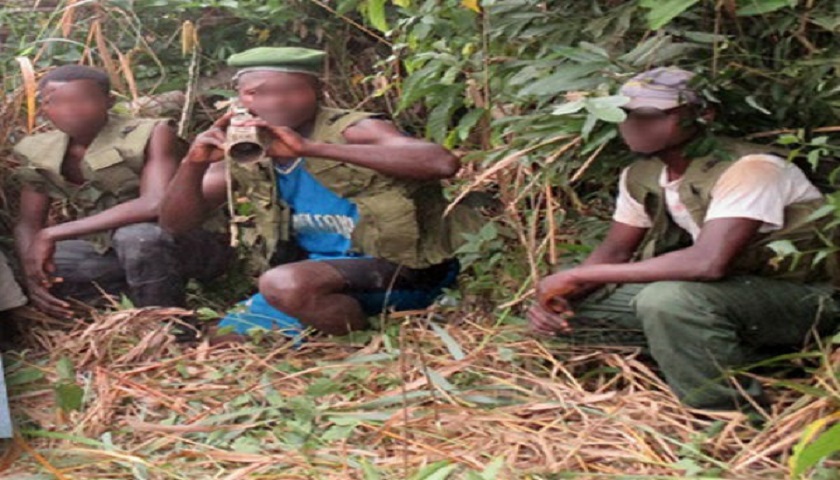
Cabinda State Liberation Front - Cabinda Armed Forces (FLEC-FAC) claims 16 people killed: 12 Angolan Armed Forces (FAA) soldiers and four civilians during "violent fighting" on April 11th. Clashes between soldiers and the FAC took place on Monday morning in the villages of Kisungo and Tando Masele in the Maiombe region of Belize, northern Angola.
In a "war statement", the FLEC says its soldiers recovered weapons left by FAA soldiers and stresses that eight Angolan Armed Forces soldiers were also wounded. "The intensification of fighting in large-scale operations launched by the FAC on Monday is aimed at reclaiming areas conquered by Angolan invaders," the statement, signed today by Belize Military Region Commander Lieutenant General Gelson, said. Fernandes N. 'Case.
The FLEC also adds that "in this period of large-scale military operations throughout the territory of Cabinda against the Angolan military invasion, the FAC High Military Commander advises all foreign companies to suspend all activities and abandon the territory of Cabinda ". The Angolan province of Cabinda, where most of the country's oil reserves are concentrated, is not adjacent to the rest of the territory and for years local leaders have been defending independence, claiming - it is true - an autonomous colonial history of Luanda.
The FLEC, through its "armed arm", the FAC, fights for the independence of that province, stating - once again rightly - that the enclave was a Portuguese protectorate, as established by the Treaty of Simulambuco, signed in 1885, and not part of Angolan territory.
Precisely on April 10, another Cabinda-Forças Armadas de Cabinda (FLEC-FAC) Liberation Front of the Enclave (sometimes referred to as the State) turned to UN Secretary-General António Guterres. and the European Union to step up efforts to support territorial self-determination and independence. The call was made in a statement in which FLEC-FAC urges the international community to "assume its responsibilities in the decolonization of the last colony of Africa", and accuses Portugal of being "responsible for the occupation of Cabinda for Angola ". "Angola could not have invaded Cabinda militarily without the support of Portugal," reads the statement in which the FLEC-FAC blames the country for the "political impasse" in the dispute over which it regrets the "laxity" and the "silence". of the Portuguese government ”. This FLEC-FAC also urges Portugal to take a "firm stand against the brutality and daily repression inflicted by the Angolan occupation forces on Cabinda civilians in the occupied territory", stressing the "importance of ending the injustice of the which are the victims of the cabindas ".
The Front for the Liberation of the Enclave (or State) says it will try to mobilize maximum support among parliamentarians and institutions of the European Union (EU), as well as among journalists, to end "the current tragedy and achieve a The people of Cabinda "will continue their struggle to impose justice and liberate the territory from the Angolan presence," FLEC-FAC said. not to give up the “inalienable right to self-determination, to independence”, for which he will continue to fight, using “all legal means”.
"Forgetting the Cabinda conflict is contributing to the deteriorating defense and security environment in the region and a means to allow the Angolan state to continue its policy of regression and militarization of Cabinda and neighboring states." added FLEC in the statement. Cabinda's pro-independence activists rightly argue that the territory was an independent colony of Portugal and should have been treated as such in Angola's independence process.

.jpg)











0 comentaris :
Publica un comentari a l'entrada